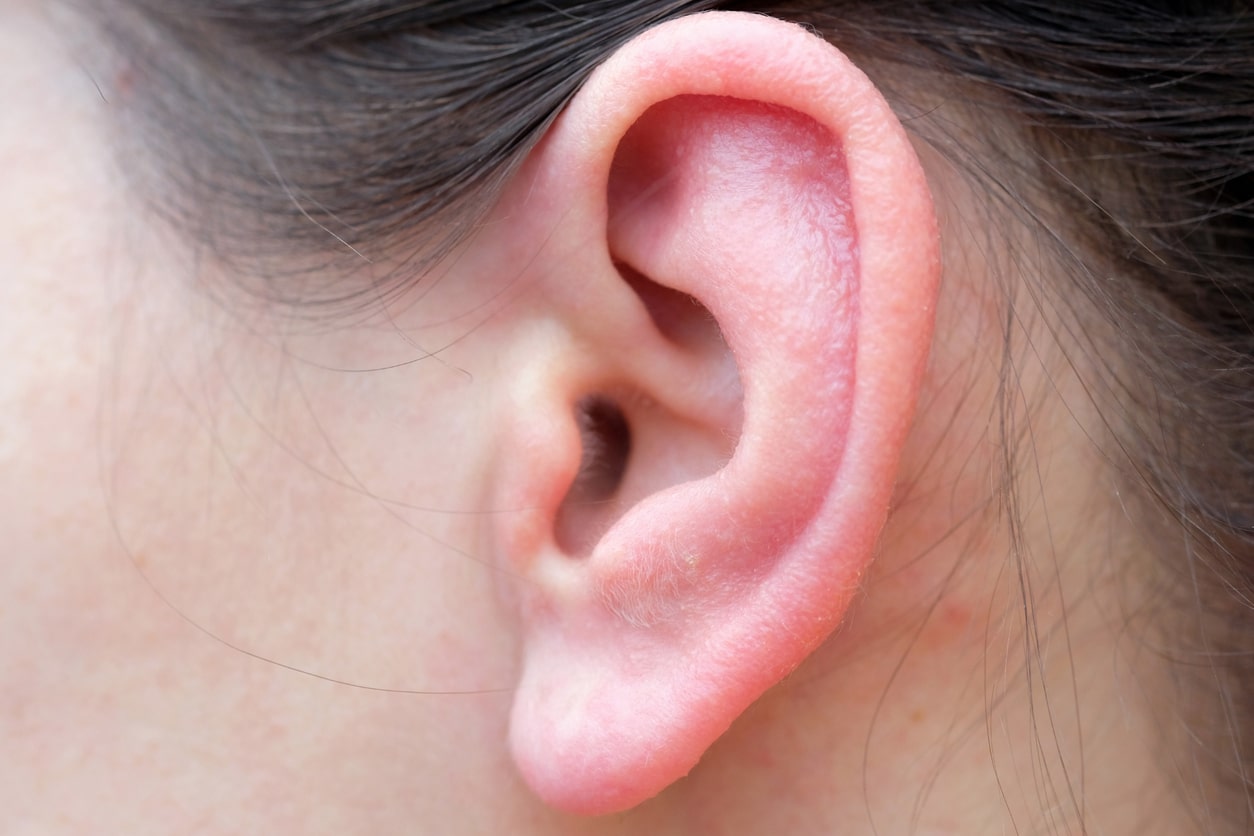Dry ears can occur because of various causes, from over-cleaning to skin conditions such as eczema. In most cases, it can be easily treated; understanding the cause can allow you to take steps to relieve potential discomfort.
Causes of Dry Ears

Dry ears are usually the result of some form of ear irritation disrupting the moisture balance in or around the ear. Skin conditions that impact other areas of the body can also cause dry ears.
Some examples of causes of dry ears can include:
- Psoriasis: Psoriasis is a skin condition that causes dry, scaly patches. It can affect the skin, neck and outer ear.
- Dermatitis: Dermatitis is a skin infection and can occur due to an allergic reaction or unknown causes.
- Eczema: Eczema is the most common form of dermatitis and can occur in the ear canal.
- Headphones: Wearing headphones can cause dry ears due to the earbuds rubbing against the sensitive skin of the ear canal, causing irritation.
- Over-cleaning: Over-cleaning can remove natural oils and earwax that moisturize the ear.
Since dry ears can often cause an itching sensation, the first step for managing dry ears is to relieve the itching and then restore the moisture balance to the ear. If you suspect your dry ears are being caused by headphones or over-cleaning, take a break from both.
Additionally, in most circumstances, the ear does a good job of self-cleaning, so there is little need for cleaning products such as cotton swabs. Cotton swabs can cause damage to the inner ear and push debris further into the ear canal. Excessive heat can also cause dry ears, so it may be a good idea to pick up a humidifier from Good Day Pharmacy.
From there, other treatment options are based on the underlying cause of dry ears. Treatment options can include:
- Steroid creams as a temporary treatment (due to long-term side effects)
- Antifungal eardrops or oral antibiotics
- Gentle cleaning
- Petroleum jelly to soothe or moisturize
If you’re experiencing chronic dry ears, it could be a good idea to see an ENT. The ENT can help diagnose root causes and recommend treatment options. You should also see an ENT if your dry ears form crusts and begin hurting or bleeding; at that point, the dry ears may have progressed past the ability to be treated with home remedies.
For ear, nose or throat questions, contact Alpine Ear Nose & Throat PC. If you’re experiencing dry ears and want a doctor to take a look, schedule an appointment today.